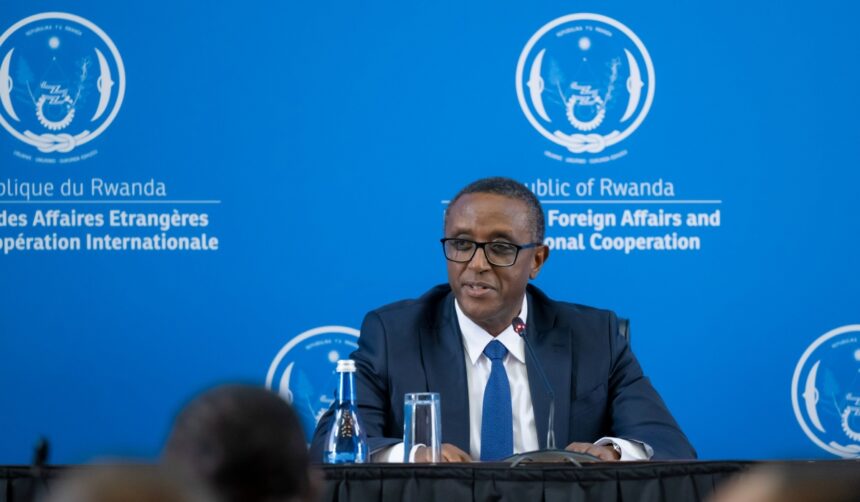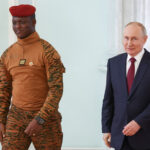Rwanda has recently raised concerns over the presence of more than 2,000 mercenaries from Eastern Europe within the armed forces of the Democratic Republic of Congo (DR Congo) as well as their alleged affiliation with the Democratic Forces for the Liberation of Rwanda (FDLR).
During the diplomatic briefing held by the Ministry of Foreign Affairs and Cooperation on October 11, the Rwandan government expressed worries about the potential threat these mercenaries might pose to regional stability and security.
Speaking about regional matters, Vincent Biruta, the Minister of Foreign Affairs and International Cooperation, said that fighting has reignited, between the Kinshasa-backed coalition of illegal armed groups – which includes the FDLR – against the M23, following the Congolese Government’s ultimatum ordering the M23 group to withdraw from all controlled territories or be met with force.

The FDLR is a rebel group that originated from Rwandan Hutus who fled to the DR Congo after the genocide in Rwanda in 1994. It is alleged that some of these mercenaries have connections with the FDLR.
These claims have raised eyebrows in diplomatic circles, with Rwanda demanding further investigation into the matter. The concern is not only related to the presence of foreign mercenaries but also their involvement with the FDLR, which is regarded as a destabilizing force in the region.
Vincent Biruta shared concerns that the presence and participation in the conflict of the more than 2, 000 mercenaries from Eastern Europe, together with the increasingly hostile rhetoric by Kinshasa, “present a continued and heightened security threat to Rwanda.”
He highlighted the selective implementation of the Luanda roadmap.
Whenever the issue of cantonment is raised, it concerns only one group and not the more than 200 armed groups currently active in Eastern DR Congo, he said.
He emphasized that FDLR must be cantoned and dismantled. The international community cannot claim to support the ongoing regional processes and, at the same time, minimise the threat posed by the Kinshasa-backed FDLR genocidal militia, he noted.
While the specific origins and motives of these Eastern European mercenaries remain unclear, Rwanda insists on a thorough examination of their activities and affiliations. The Rwandan government has vowed to cooperate with international partners and intelligence agencies to gather concrete evidence and shed light on this matter.
Biruta reiterated that Rwanda prioritises the security of its citizens and residents.
He said Rwanda will not initiate an escalation with the DR Congo. “The defensive and preventive measures on Rwanda’s borders will remain in place should its security be endangered.”
He reaffirmed Rwanda’s commitment to the ongoing regional peace frameworks and called on the international partners to collaborate with the region and address the root causes of the crisis.
Meanwhile , The East African Community (EAC) has said it is “deeply concerned” by the escalation of hostilities by armed groups in eastern DR Congo, especially in the areas of operation of the bloc’s regional force.
In a statement on Thursday, October 12, EAC Secretary-General Peter Mathuki said there was a “deteriorating security situation” in North Kivu province, where the Congolese army and a coalition of militias fight the M23 rebel group.
Mathuki said the hostilities “stand in stark contrast to the envisioned peaceful resolution of the conflict through the EAC-Led Nairobi Process.”
Further developments are expected as Rwanda seeks clarification and additional information from the DR Congo authorities regarding the alleged presence and involvement of Eastern European mercenaries. International bodies and regional organisations will also monitor the situation closely to ensure peace and stability in the Great Lakes region are maintained.









